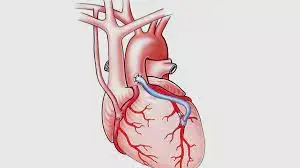- Home
- Medical news & Guidelines
- Anesthesiology
- Cardiology and CTVS
- Critical Care
- Dentistry
- Dermatology
- Diabetes and Endocrinology
- ENT
- Gastroenterology
- Medicine
- Nephrology
- Neurology
- Obstretics-Gynaecology
- Oncology
- Ophthalmology
- Orthopaedics
- Pediatrics-Neonatology
- Psychiatry
- Pulmonology
- Radiology
- Surgery
- Urology
- Laboratory Medicine
- Diet
- Nursing
- Paramedical
- Physiotherapy
- Health news
- Fact Check
- Bone Health Fact Check
- Brain Health Fact Check
- Cancer Related Fact Check
- Child Care Fact Check
- Dental and oral health fact check
- Diabetes and metabolic health fact check
- Diet and Nutrition Fact Check
- Eye and ENT Care Fact Check
- Fitness fact check
- Gut health fact check
- Heart health fact check
- Kidney health fact check
- Medical education fact check
- Men's health fact check
- Respiratory fact check
- Skin and hair care fact check
- Vaccine and Immunization fact check
- Women's health fact check
- AYUSH
- State News
- Andaman and Nicobar Islands
- Andhra Pradesh
- Arunachal Pradesh
- Assam
- Bihar
- Chandigarh
- Chattisgarh
- Dadra and Nagar Haveli
- Daman and Diu
- Delhi
- Goa
- Gujarat
- Haryana
- Himachal Pradesh
- Jammu & Kashmir
- Jharkhand
- Karnataka
- Kerala
- Ladakh
- Lakshadweep
- Madhya Pradesh
- Maharashtra
- Manipur
- Meghalaya
- Mizoram
- Nagaland
- Odisha
- Puducherry
- Punjab
- Rajasthan
- Sikkim
- Tamil Nadu
- Telangana
- Tripura
- Uttar Pradesh
- Uttrakhand
- West Bengal
- Medical Education
- Industry
Perioperative control of BP, cholesterol and blood sugar improves CABG outcomes: study

According to a recent study published in the Journal of the American Heart Association, Perioperative control of BP, cholesterol, and blood sugar improves CABG outcomes.
Coronary artery bypass graft (CABG) surgery represents the preferred revascularization strategy for most diabetes and multivessel disease patients. We aimed to evaluate the role of optimized, perioperative cardiometabolic targets on long‐term survival in patients who underwent CABG.
Single‐institution retrospective study was conducted on patients with diabetes who underwent CABG between January 2010 and June 2018. Demographic, surgical, and cardiometabolic determinants were identified during the perioperative period. Clinical characteristics and longitudinal survival outcomes data were obtained. A total of 1534 patients with CABG were considered for analysis, and 1273 met inclusion criteria.
The results are:
The mean age of patients was 63.3 years (95% CI, 62.7–63.8 years), and most were men (65%) and Hispanic or Latino (47%). Comorbidities included hypertension (95%) and dyslipidemia (88%). In total, 490 patients (52%) had a low‐density lipoprotein cholesterol level >70 mg/dL. Furthermore, 390 patients (31%) had uncontrolled systolic blood pressure >130 mm Hg. Last, only 386 patients (29%) had a haemoglobin A1c level between 6% and 7%. At 5 years, 121 patients (10%) died. Failure to achieve goal systolic blood pressure was associated with all‐cause (hazard ratio [HR], 1.573; 95% CI, 1.048–2.362 [P=0.029]) and cardiovascular (HR, 2.023; 95% CI, 1.196–3.422 [P=0.009]) mortality at 5 years post‐CABG. In contrast, prescription of a statin during the perioperative interval demonstrated a protective effect for all‐cause (HR, 0.484; 95% CI, 0.286–0.819 [P=0.007]) and cardiovascular (HR, 0.459; 95% CI, 0.229–0.920 [P=0.028]) mortality. There was no association between the achievement of low‐density lipoprotein cholesterol, triglycerides, non–high‐density lipoprotein cholesterol, or haemoglobin A1c level goals and mortality risk at 5 years.
Thus, among patients with diabetes, blood pressure control and statin therapy were the most important perioperative cardiometabolic survival determinants 5 years after CABG.
Reference:
Perioperative Cardiometabolic Targets and Coronary Artery Bypass Surgery Mortality in Patients with Diabetes by John P. Skendelas et al. published in the Journal of the American Heart Association.
https://doi.org/10.1161/JAHA.121.023558
Dr. Shravani Dali has completed her BDS from Pravara institute of medical sciences, loni. Following which she extensively worked in the healthcare sector for 2+ years. She has been actively involved in writing blogs in field of health and wellness. Currently she is pursuing her Masters of public health-health administration from Tata institute of social sciences. She can be contacted at editorial@medicaldialogues.in.
Dr Kamal Kant Kohli-MBBS, DTCD- a chest specialist with more than 30 years of practice and a flair for writing clinical articles, Dr Kamal Kant Kohli joined Medical Dialogues as a Chief Editor of Medical News. Besides writing articles, as an editor, he proofreads and verifies all the medical content published on Medical Dialogues including those coming from journals, studies,medical conferences,guidelines etc. Email: drkohli@medicaldialogues.in. Contact no. 011-43720751


